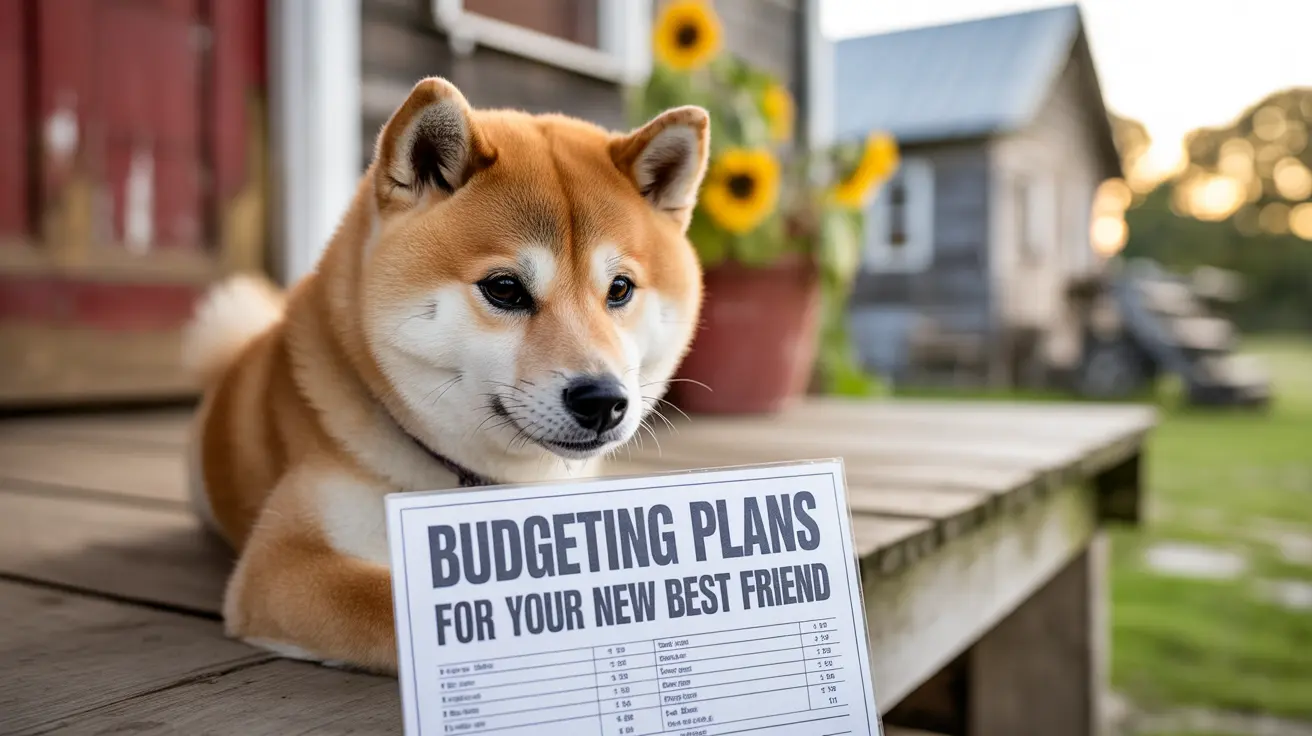Considering adding a Shiba Inu to your family? Understanding the true cost of owning this distinctive Japanese breed goes far beyond the initial purchase price. From breeder fees to lifetime care expenses, this comprehensive guide breaks down every cost you'll encounter as a Shiba Inu owner.
Whether you're planning to purchase from a reputable breeder or adopt through a rescue organization, we'll help you prepare financially for both immediate and long-term expenses of Shiba Inu ownership.
Purchase and Adoption Costs
The initial cost of acquiring a Shiba Inu varies significantly based on your chosen path to ownership. When purchasing from a reputable breeder, expect to pay between $1,400 and $2,200 for a standard puppy. Show-quality puppies or those with exceptional bloodlines can command prices up to $3,500.
Adoption offers a more budget-friendly alternative, with fees typically ranging from $300 to $500. These fees usually include initial veterinary care, spaying/neutering, and vaccinations, making adoption an economically sound choice for many prospective owners.
Initial Setup Expenses
Before bringing your Shiba Inu home, you'll need to invest in essential supplies. Plan to spend $235-$395 on initial setup costs, including:
- Quality dog bed: $25-$200
- Secure crate: $40-$80
- Durable leash and harness: $100-$200
- Food and water bowls: $20-$30
- Enrichment toys: $30-$50
- Grooming supplies: $20-$45
Ongoing Monthly Expenses
Monthly costs for a Shiba Inu typically range from $67 to $603, with most owners spending around $100-$150 per month. These expenses include:
Food and Nutrition
High-quality dog food costs $35-$80 monthly, depending on brand and special dietary needs. Shibas typically eat less than larger breeds, but nutrition quality shouldn't be compromised.
Healthcare and Insurance
Pet insurance premiums range from $25-$85 monthly. Routine veterinary care, including annual check-ups and vaccinations, adds approximately $300-$500 annually.
Grooming Needs
While Shibas are naturally clean dogs, professional grooming during heavy shedding seasons costs $50-$70 per session, typically needed 4-6 times yearly.
Annual Cost Considerations
First-year Shiba Inu ownership costs typically range from $1,885 to $4,870, including:
- Initial purchase/adoption: $1,400-$3,500
- Vaccinations and microchipping: $300-$500
- Spaying/neutering: $350
- Training classes: $100-$500
- Food and supplies: $400-$1,300
- Insurance: $300-$1,000
Long-term Financial Planning
Shiba Inus typically live 12-15 years, making them a significant long-term financial commitment. Over their lifetime, owners can expect to spend $15,000-$25,000 on care, considering routine expenses and potential medical emergencies.
Frequently Asked Questions
How much does it typically cost to buy a Shiba Inu puppy from a reputable breeder?
A Shiba Inu puppy from a reputable breeder typically costs between $1,400 and $2,200, with show-quality puppies reaching up to $3,500.
What are the adoption fees for a Shiba Inu and how do they compare to breeder prices?
Adoption fees usually range from $300 to $500, significantly less than breeder prices. This often includes initial veterinary care, making adoption more cost-effective.
What initial supplies and setup costs should I budget for when bringing home a Shiba Inu puppy?
Budget $235-$395 for initial supplies, including a bed, crate, leash, harness, bowls, toys, and basic grooming tools.
How much can I expect to spend annually on food, grooming, and healthcare for a Shiba Inu?
Annual expenses typically total $1,010-$3,120, breaking down to $400-$1,300 for food, $310-$820 for grooming, and $300-$1,000 for healthcare.
Does the cost of a Shiba Inu vary based on factors like coat color, age, or breeder reputation?
Yes, factors such as rare coat colors, breeder reputation, and age affect price. Show-quality puppies and those from prestigious breeders command higher prices, while adult dogs typically cost less.
Remember to thoroughly research and prepare for both the financial and time commitments of Shiba Inu ownership. While the initial cost might seem substantial, proper planning ensures you can provide the best care for your new companion throughout their life.






